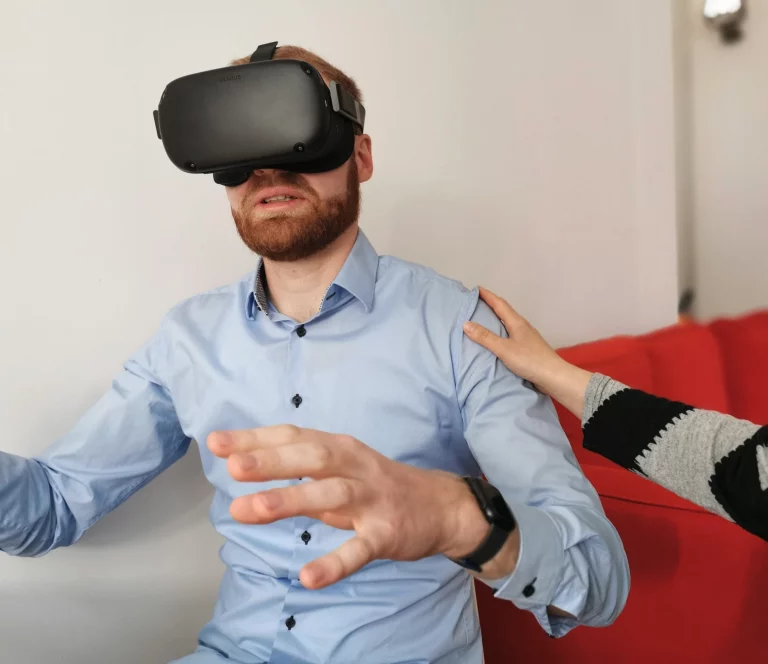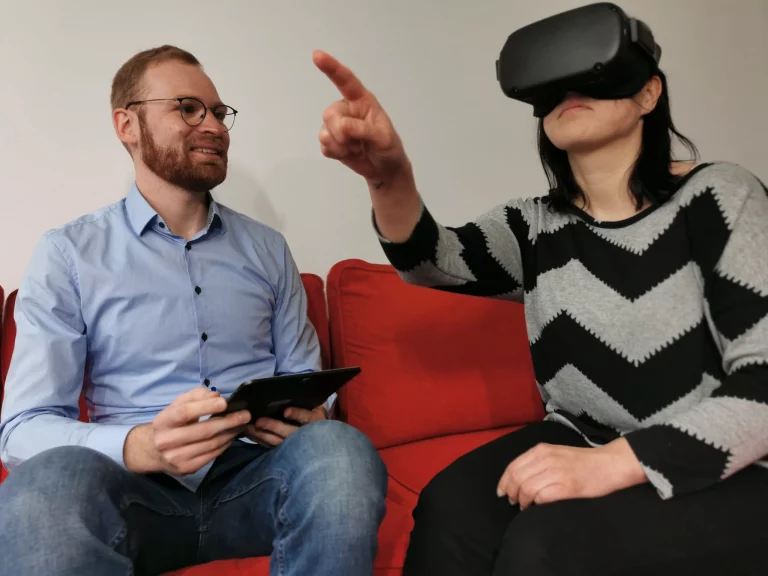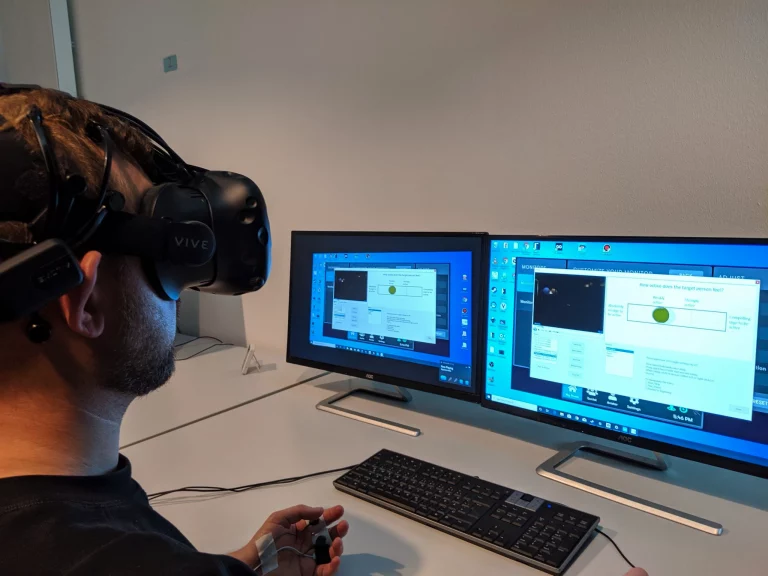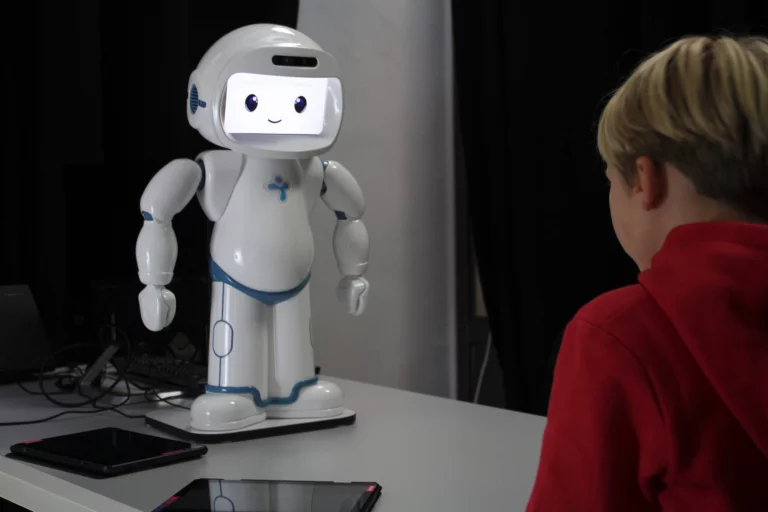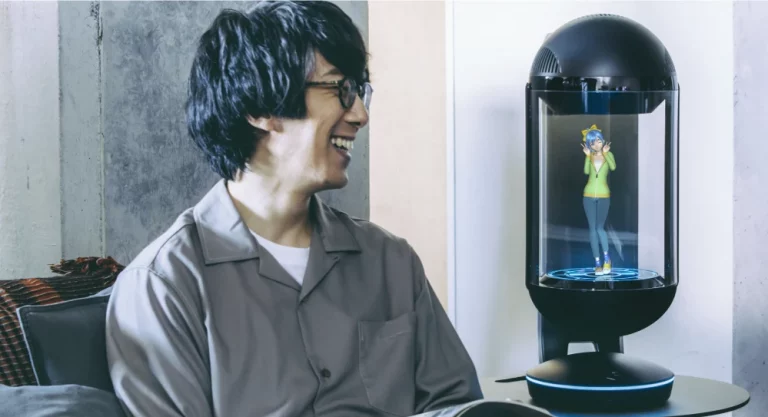Virtual Reality
A Health Science Supplement
Virtual Reality (VR) is a computer-generated reality with audio-visual components. Its uses are virtually limitless and can be combined with other methods to create and analyze exciting new scenarios. It can be used to create innovative and new possible ways to bridge the gap between person shortage and critical therapy phases in health care.
We have the capability to combine VR with other reliable input sources, such as electrodermal activity (EDA), electrocardiographic (ECG), photoplethysmography (PPG), and electro-encephalographic (EEG), to record and evaluate the data by using the latest machine learning technologies to understand mental and physical health quality.
Successful Projects
Desktop and virtual reality-supported module variants to bridge waiting times between therapy sessions and enrich ambulant therapy
Support of acute therapy and relapse prevention in the deep psychological treatment
Computer vision-based detection of attention
Developing of emphatic dialog systems: an EU-Japanese collaboration

